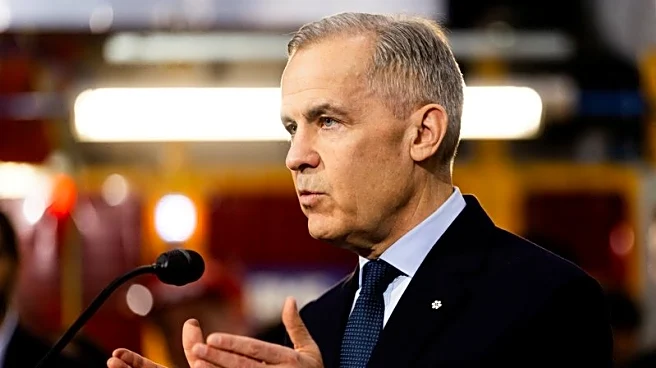Rapid Read • 7 min read
President Trump's economic policies, particularly his tariff strategy, are leading to concerns about economic degrowth in the United States. The effective tariff rate has reached 18.3%, the highest since 1934, causing prices to rise as importers pass costs to consumers. Industrial production is declining due to uncertainty in the sector. The U.S. is experiencing shortages of immigrants and visitors, affecting tourism and labor markets. Trump's policies are seen as protectionist, aiming to reduce consumption and production, which contrasts with traditional economic growth models.
AD
Trump's economic approach could have significant impacts on U.S. industries and the broader economy. The rise in tariffs and reduction in government subsidies for necessities may lead to higher costs and reduced supply, affecting consumer spending and business operations. The potential for stagflation and recession poses risks to economic stability. Trump's policies may benefit certain sectors but could harm others, leading to uneven economic outcomes. The long-term effects on productivity and innovation could hinder U.S. competitiveness globally.
The U.S. may face increased economic challenges as Trump's policies continue to unfold. Stakeholders, including businesses and consumers, may need to adapt to changing market conditions. Political leaders and economic experts may debate the merits and consequences of Trump's approach, potentially influencing future policy decisions. The administration's handling of tariffs and subsidies will be closely watched, with potential adjustments based on economic indicators and public response.
Trump's economic strategy raises ethical and cultural questions about the role of government in shaping economic outcomes. The focus on degrowth contrasts with traditional views on prosperity and progress, challenging societal norms about consumption and production. The impact on vulnerable populations, including low-income families and immigrants, highlights issues of equity and access. The broader implications for global trade and international relations may affect U.S. standing in the world economy.
AD
More Stories You Might Enjoy












